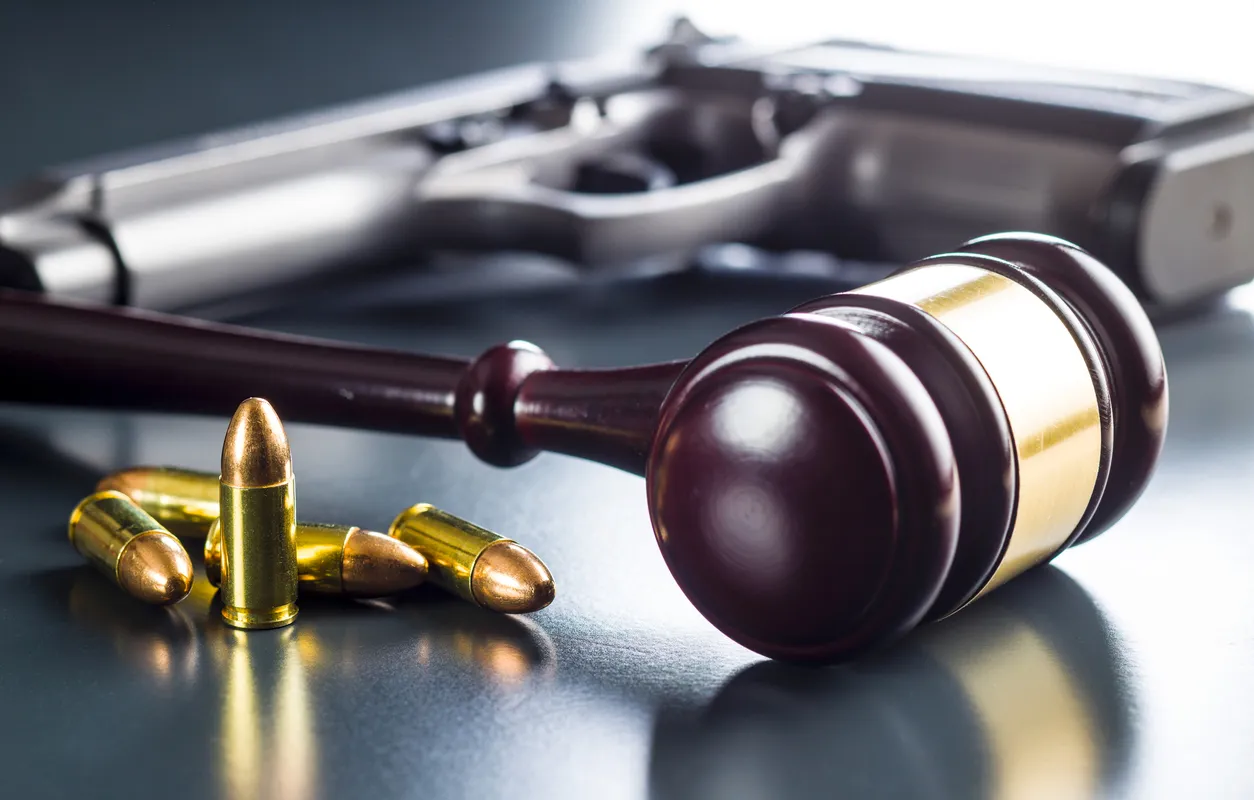What Does a Gun Background Check Show?
Since 1998, the National Instant Criminal Background Check System (NICS) has been used to vet potential buyers of firearms in the United States. Operated by the FBI, this system processes background checks on individuals looking to purchase guns from federally licensed dealers. These checks search national databases to uncover any red flags in the buyer’s history that would disqualify them from owning firearms under federal or state laws.
But what exactly does a gun background check entail? What records does it search, what information can it access, and what are its limitations? This article provides an overview of the background check process, the data sources involved, and the ongoing debate around background check policies in America.
The Basics: How NICS Background Checks Work
The federal Brady Handgun Violence Prevention Act passed in 1993 first established the requirement for firearm dealers to run background checks. Then in 1998, the FBI launched its National Instant Criminal Background Check System (NICS) to facilitate these checks.
As it currently stands, federal law mandates licensed firearms dealers, importers, and manufacturers to perform background checks on all sales, including at stores, gun shows, or online. This applies not just to purchases but also to rentals and loans of guns.
In essence, if an individual attempts to buy a gun from a licensed seller, the dealer contacts NICS online or by phone to run the background check before allowing the purchase.
The buyer fills out ATF Form 4473, which the dealer then submits to NICS along with the applicant’s personal information. This form asks questions about age, criminal record, immigration status and mental health issues to identify any red flags.
What exactly does NICS check for?
The NICS background check system is designed to weed out prospective gun buyers who federal or state laws prohibit from purchasing or possessing firearms.
This includes flagging:
- Felony convictions or indictments
- Misdemeanor domestic violence convictions
- Dishonorable military discharges
- Unlawful immigration status
- Documented mental health issues, such as involuntary commitments to mental institutions
- Active warrants
- Restraining orders
- Misdemeanor drug convictions
- Other state-specific prohibiting offenses
Essentially, the check looks for indicators that the individual is high-risk and poses a threat to public safety if allowed to buy guns.
The Databases Behind NICS Background Checks
To effectively identify these red flags, the NICS background check system taps into numerous databases that house criminal, mental health and other relevant records. The key data sources accessed include:
Interstate Identification Index (III): This index contains national criminal history records based on fingerprint submissions from law enforcement agencies. It indexes over 70 million subjects.
National Crime Information Center (NCIC): An electronic clearinghouse of documented criminal justice information on crimes and criminals. This includes protective orders, arrest warrants and more.
NICS Index: A database created specifically for the NICS background check system containing over 7 million known or suspected prohibited persons that may not exist in other systems. This includes mental health records and immigration statuses.
The background check runs the buyer’s personal information through these databases to check for any disqualifying records connected to that individual. Matches between data points prompt the need for further review by NICS examiners.
Interpreting the Results: Proceed vs Deny
Ideally, if everything checks out, NICS immediately informs the dealer to proceed with the firearm transfer. But if prohibiting records exist, the sale gets denied.
Sometimes, uncertain records require more investigation with the FBI’s NICS Section. Examiners must make the final call within 3 business days. If they still can’t resolve the case by this deadline, federal law allows the dealer to proceed at their discretion – hence the term “default proceeds”.
Regardless of the outcome, the background check generally aims to provide a clear decision to proceed or deny to the seller on whether or not the applicant is banned from purchasing firearms.
How States Handle and Supplement NICS Checks
While NICS provides the backbone for background checks, states can choose to be more deeply involved in the process.
Congress granted states three alternatives for implementing checks, including:
POC States: Act as full points of contact, running checks themselves by accessing local data and NICS records, then applying both federal and state law. Thirty POC states currently operate this way.
Non-POC States: Licensed dealers directly contact the FBI’s NICS system as needed. But states still make their records available and apply their laws.
Partial-POC States: Operate as POCs for handgun checks but have dealers route long gun inquiries directly to the NICS.
Furthermore, some states add their own statutes banning more individuals from possessing guns beyond federal law or require stricter processes for firearm transfers.
In essence, the background check experience can vary across states depending on involvement levels and additional measures put in place.
The Limitations of the Current System
While NICS has processed over 400 million background checks since launching in 1998, questions around gaps and weaknesses in the system persist in the ongoing debate around gun violence and safety in America.
Coverage Gaps
Critics argue the system still allows too many prohibited persons to readily get guns since federal law does not require checks for private sales by unlicensed sellers. This means buyers can bypass background checks through private sellers at gun shows or online markets.
Furthermore, reporting remains fragmented. States fail to consistently submit comprehensive records, especially related to domestic violence and mental health history, that would establish legal barriers to buying guns.
Operational Issues
Default proceeds also highlight gaps where uncertain cases aren’t resolved promptly, so sales go through after the initial 3-day NICS investigatory period expires.
And determination processes don’t systematically capture “lie-and-try” scenarios where buyers provide false information to illegally pass background checks.
The Big Picture
Supporters argue that while imperfect, NICS checks still effectively filter prohibited millions of high-risk individuals from purchasing firearms annually and save lives as a result. Critics counter that as long as loopholes and gaps persist that arm dangerous individuals, society remains vulnerable to ongoing gun violence epidemics across America.
This is why debates around bolstering or expanding background check requirements continue to simmer.
Looking Ahead at Background Check Policies
Currently, the political stalemate on gun policy reforms means NICS procedures likely persist as is for now. This includes arguments against extending universal background check requirements to all firearm transfers.
However, the proven value of background checks in deeming buyers unfit to purchase guns ensures that improving this system stays part of proposed gun law overhauls in response to public pressure.
This at least keeps the door open for legislation addressing current gaps, whether requiring truly comprehensive state record submissions or mandating checks on all secondary sales.
Such measures could strengthen identification of prohibited possessors and further curb high-risk individuals from accessing firearms through existing loopholes.
For now, NICS keeps doing its job as an imperfect net attempting to catch ineligible firearm buyers. But for broader gun law debates, focusing on making background checks more air-tight remains an attractive lifesaving proposition in a political landscape that agrees far less on most other fronts when it comes to gun ownership in America.
Work With Our Firm To Secure Your Rights
If you face criminal charges that could threaten your legal ability to access or own firearms, securing experienced legal representation right away is critical. Don’t gamble with your rights.
At The Nieves Law Firm, our team has successfully built strong cases that lead to dismissals and prevent future fallout. A knowledgeable gun crimes attorney can ensure your case is properly investigated and your rights are protected every step of the way. With over 124 5-star reviews on Google and nearly four decades of combined legal experience among our attorneys, you can feel confident putting your future in our firm’s hands.
Contact us online or call 510-879-7549 for a free consultation on your case. We have recovered millions for our clients – let us review your situation to determine the best pathways forward.
Stay in touch to get more updates & news on Discover Tribune!






